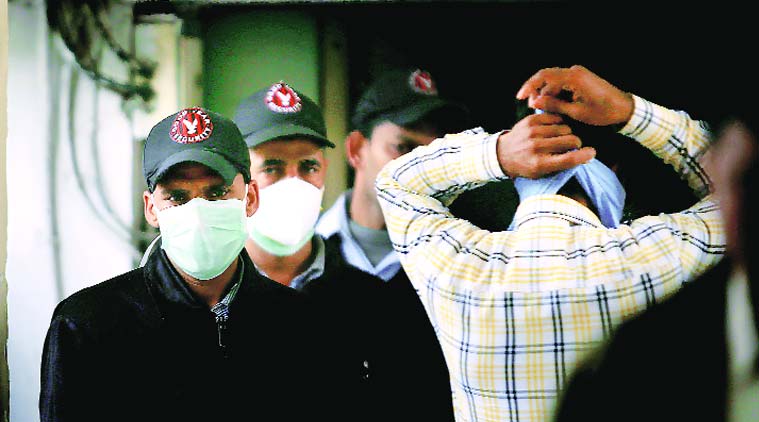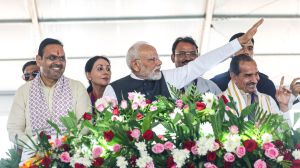Stay updated with the latest - Click here to follow us on Instagram
Wet Delhi sees spike in H1N1 virus cases
Number was expected to dip in March, but nearly 1,000 cases reported in last 2 weeks.
 The total number of deaths due to the H1N1 virus stands at 1,482.
The total number of deaths due to the H1N1 virus stands at 1,482.
With the mercury dipping over the last two days and the intermittent rain expected to continue, swine flu cases have seen a spike in the capital. Health department officials said the number would go down from this month. But nearly 1,000 cases of the H1N1 virus were reported in the last two weeks alone, taking the tally close to 4,000 cases since this January 1.
Officials said the unexpected frequent showers are keeping the cases coming. Director of health services Dr S K Sharma said, “Once the temperature rises, usually after Holi, cases subside every year. But this year, the weather has been unpredictable and we are seeing rains every 2-3 days. So the temperature is dipping and the H1N1 cases continue to come in. This is due to the prevailing weather conditions and there is no reason to panic.”
[related-post]
Health authorities said usually by the time dengue cases start surfacing — during and after the monsoon — swine flu cases become rare. This year, three dengue cases were reported between March 1 and March 15 and swine flu cases went up from 2,999 to 3,998.
In the last three days alone, 278 patients tested positive for the H1N1 virus in Delhi. Eleven patients have succumbed to the virus this year, including two pregnant women and a child.
Health officials said arrangements for swine flu — treatment and diagnostic facilities — will be kept functional till the cases subside.
“Isolation wards are ordinarily closed from April, but considering the cases — everyday we are still getting 40-50 cases — isolation centres will be kept open and doctors will continue treatment guidelines of category A, B and C patients as reiterated in periodic advisories,”a Health department official said.
Health authorities said guidelines for diagnostic tests have been sent to private laboratories and only category C patients — those with warning symptoms like difficulty in breathing and no co-morbid conditions and those referred by hospitals — should be tested for H1N1.
For patients in category B, including children, the elderly or those with pre-existing diseases like diabetes and cancer, the Health department has revised guidelines and directed that they be given Tamiflu directly without testing. “The H1N1 virus has become part of the routine influenza cycle now and many people have natural immunity,” Dr Sharma said.
Both the BJP and Congress have criticised the government’s management of the H1N1 cases, with the Congress conducting a drive at Metro stations to spread awareness about the virus.
Delhi BJP chief Satish Upadhyay had met L-G Najeeb Jung last week and called for an all-party meet to discuss measures to manage H1N1.
Heath Minister Satyendra Jain said adequate measures are in place and he was reviewing treatment centres regularly.
“We have capped the costs of tests and allowed more private hospitals to treat patients though there is adequate facility in our government hospitals, including stocks of medicines and facilities for testing. People should go to government hospitals as far as possible,”Jain said.
The Delhi government had capped the price of diagnostic tests for H1N1 in private laboratories at Rs 4,500.







